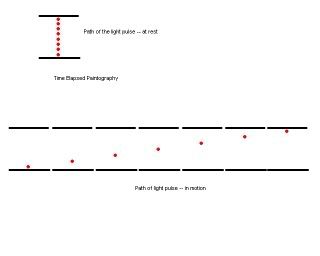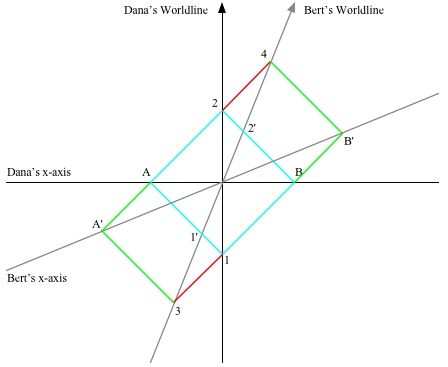I was reading up a website that describs relativity in laymens terms, and while it was explaining how time itself can appear relative, it says this:
This comes from a website that's almost a joke (it tries to explain relativity without using any words bigger then 4 letters), but I can't seem to find this explained any better elsewhere, so I was wondering if someone here could clarify.We have Bert and Dana. Take a bus, and put Bert on the bus. The bus goes down the road. Dana, she sits here, on the side of the road. He's in the bus and she's on her ass. And now take a rock off of the moon, and let it fall at them. It hits the air and cuts in two. The two bits burn, and then land just as Bert and Dana are side by side. One hits the dirt up the road a ways, and one hits down the road a ways. Dana sees each rock at the same time, but Bert sees one rock and then sees the next rock. Now: if Bert and Dana both see Dana as the one who is "at rest", they both will say that the two bits came down at the same time. Dana will say, "I am 'at rest', and I saw them both land at the same time, so they both did, in fact, land at the same time." And Bert will say, "I move away from the rock down the road, so when I add that fact in, I can see that if I were 'at rest', I'd have seen both land at the same time. So it must be the case that they did land at the same time." Okay, but what if Bert and Dana now see Bert as the one who is "at rest"? Eh? You get to pick who is "at rest" and who isn't, no? So make Bert be "at rest". Now Bert will say, "I am 'at rest', so the one up the road beat the one down the road, on the way to the dirt, just the way I saw it." And Dana will say, "I saw them land at the same time, but I move away from the rock up the road, so when I add that fact in, I can see that the rock up the road must have beat the one down the road."
Why would Bert see one rock land, then the other, instead of at the same time? How does the fact that he's moving effect this?

